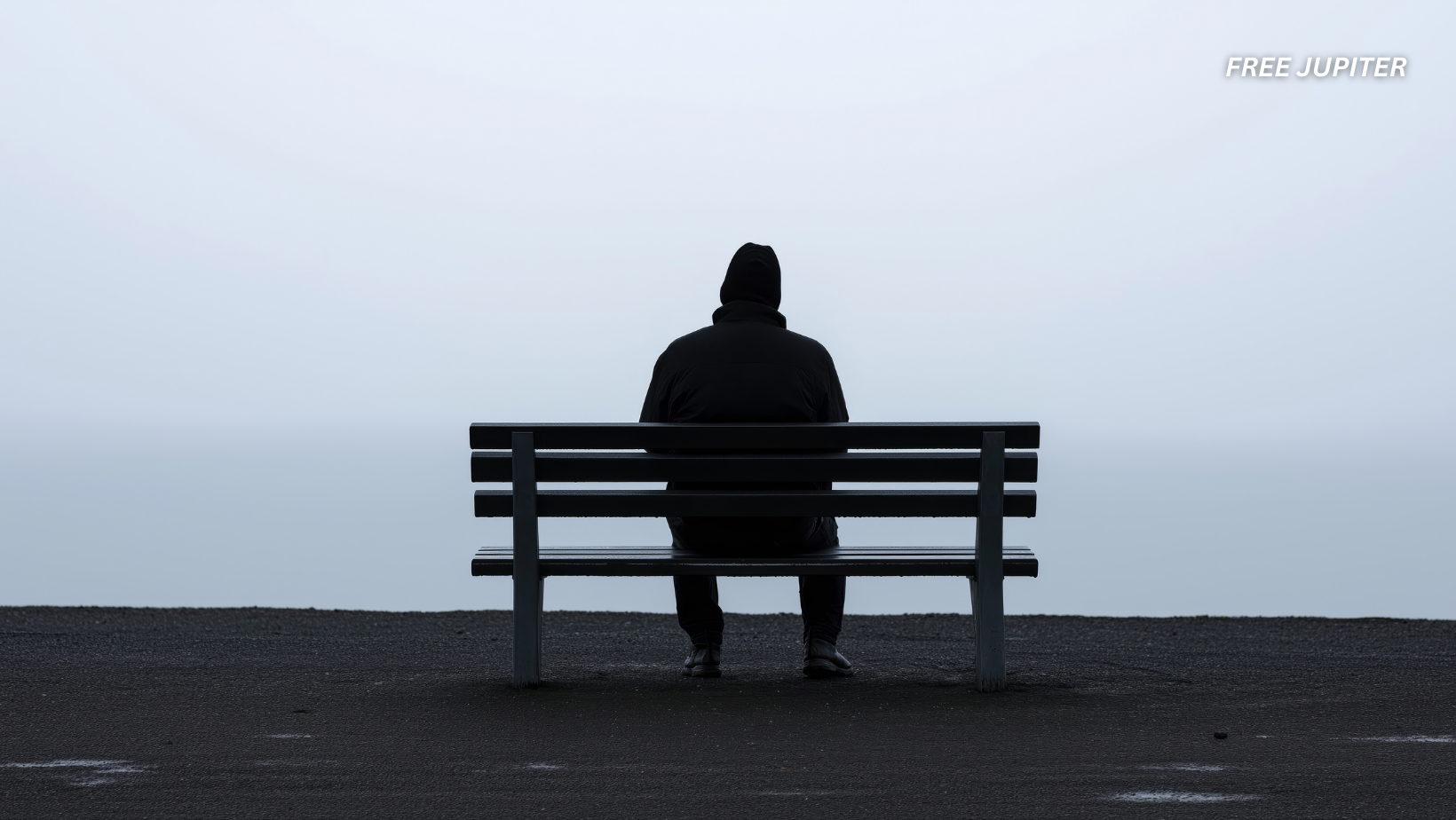Loneliness is one of those feelings that quietly slips into a person’s life, often without them even noticing at first. It can be difficult to talk about, not because it’s rare, but because it’s deeply personal. People who feel lonely don’t always admit it—sometimes even to themselves. Instead, they tend to hide it behind casual remarks that sound harmless on the surface but carry more meaning than they realize.
This reluctance to express loneliness often stems from a fear of rejection or vulnerability. Admitting you’re lonely can feel like exposing a tender part of yourself, and for many, it’s safer to stay behind emotional walls. But these small defenses can turn into habits, quietly keeping them disconnected from the very connections they long for.
Here are 12 common phrases that people who are deeply lonely often say without realizing they’re revealing how isolated they truly feel.
1. “I’m fine, really.”
This phrase is the emotional equivalent of a mask. People who feel lonely often say this automatically when someone asks how they’re doing. Deep down, they’re not fine—but saying so feels risky. Admitting sadness might make them feel weak, or worse, like a burden.
By insisting they’re fine, they protect themselves from vulnerability. Unfortunately, this habit also keeps them from receiving the empathy and comfort that might help them feel less alone.
Read more: Psychology Says People Who Hide These 12 Things From Others Are Exceptionally Intelligent
2. “I’m just tired.”
Fatigue can be a disguise for emotional exhaustion. People experiencing deep loneliness often say they’re tired—not just because they’re sleepy, but because they’re emotionally drained. Loneliness can disrupt sleep patterns and cause restlessness, which in turn makes them feel even more worn out.
Saying “I’m tired” is easier than explaining an ache that feels invisible. It offers an excuse that others won’t question, sparing them from conversations they may not feel ready to have.
3. “Everyone’s so busy these days.”
When loneliness starts to settle in, people often explain it away by blaming the pace of modern life. Saying “everyone’s busy” helps them rationalize why they feel disconnected. It’s a subtle way of protecting their self-esteem—because if others are too busy, then it’s not that they’re being ignored.
But sometimes, this belief becomes a shield. It prevents them from reaching out, reinforcing their isolation even further. They convince themselves that no one has time, when in reality, they might just be afraid to ask for someone’s company.
4. “I’m used to being on my own.”
This statement often sounds confident, even self-sufficient. But underneath it, there’s usually a quiet sadness. People who are lonely sometimes pretend they prefer solitude as a way to hide the sting of feeling unwanted.
Admitting loneliness can feel shameful—like confessing that something’s wrong with them. So instead, they frame their solitude as a personal choice, even when it isn’t. Over time, this mindset becomes a self-fulfilling prophecy, keeping them from forming the connections they secretly crave.
5. “I don’t want to bother anyone.”
This phrase might seem selfless, but it often reveals deep insecurity. Lonely individuals frequently convince themselves that reaching out will inconvenience others. They worry that expressing their needs will make them seem needy or annoying.
However, in trying to protect others from being “bothered,” they end up isolating themselves further. As one philosopher once noted, shutting yourself off emotionally doesn’t protect your humanity—it slowly erodes it. Connection, even in small doses, is what keeps people alive inside.
6. “I just prefer my own company.”
It’s possible to genuinely enjoy solitude, but for someone who’s lonely, this phrase often becomes a coping mechanism. They may repeat it to convince themselves that being alone is their choice, not a symptom of disconnection.
This self-protection strategy shields them from rejection. If they believe they prefer solitude, they don’t have to risk feeling unwanted. Yet deep down, this narrative may only deepen their sense of isolation, turning comfort into confinement.
7. “I’ll just do it myself.”
For many lonely people, independence becomes both armor and prison. Saying “I’ll do it myself” can sound empowering, but it often masks a fear of depending on others. They might assume that asking for help will lead to disappointment—or that people will let them down.
In avoiding reliance on others, they unknowingly reinforce their solitude. Independence isn’t the problem—emotional isolation is. What begins as self-sufficiency can quietly harden into loneliness.
8. “I don’t really have anyone to talk to.”
This statement often slips out when loneliness becomes too heavy to hide. Even surrounded by people, they may still feel emotionally distant—misunderstood or unseen.
This kind of loneliness is more about feeling invisible than being physically alone. Psychologists describe it as the ache of not being understood. They might have friends or family nearby, but without emotional closeness, every conversation feels hollow.
Read more: 14 Simple Tricks to Stop Overthinking Every Little Thing That You Do
9. “I figured you were busy.”
This is another gentle defense mechanism—part politeness, part fear. By assuming others are too busy, lonely individuals protect themselves from the possibility of rejection. If someone doesn’t respond, it feels less painful to think they were just occupied than to imagine they weren’t interested.
Unfortunately, this assumption becomes a barrier. It keeps them from reaching out or reconnecting, which only deepens their disconnection over time.
10. “I’m just going to head home.”
This phrase often appears at social gatherings or group events. People who struggle with loneliness sometimes feel out of place even in a crowd. So, they quietly excuse themselves, telling others they’re just going home.
What they’re really saying is, “I don’t feel like I belong here.” It’s not that they dislike company—it’s that being surrounded by others can make their loneliness feel even more obvious. Retreating feels safer than sitting in that discomfort.
11. “I’ve been feeling a little down lately.”
When loneliness becomes difficult to ignore, this is how many people soften the truth. They downplay their sadness, describing it as “just a little down.” It’s a way to open up without being fully exposed.
But loneliness is deeper than momentary sadness—it’s a sense of emotional disconnection that lingers, even in familiar settings. By minimizing their feelings, they deny themselves the support that could make a real difference.
12. “I’m better off keeping to myself.”
This phrase might sound like acceptance, but it’s often resignation disguised as wisdom. After being let down or feeling rejected, some people convince themselves that keeping to themselves is the best option. It feels safe—but it’s also isolating.
In truth, human beings are wired for connection. Even the most introverted souls need to feel seen and valued. Believing they’re “better off alone” can trap them in a cycle of emotional distance, where safety replaces intimacy—and loneliness quietly grows stronger.
Read more: Psychologists Say These 11 Patterns Will Instantly Reveal If You Struggle to Set Boundaries
A Quiet Struggle That Deserves Compassion
Loneliness doesn’t always look like sadness. Sometimes it wears a polite smile, a casual shrug, or an “I’m fine.” The people who seem the most composed are often the ones carrying silent battles within.
Recognizing these subtle cues—whether in others or in ourselves—is the first step toward breaking the cycle. Because the truth is, everyone needs someone. Admitting that isn’t weakness—it’s what makes us human.
Featured image: Freepik.
Friendly Note: FreeJupiter.com shares general information for curious minds. Please fact-check all claims and double-check health info with a qualified professional. 🌱










